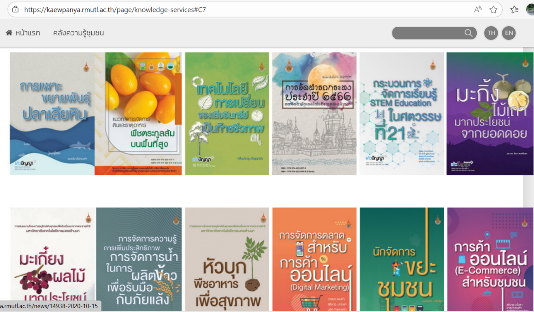RMUTL provides farmers and food producers with access to research, technologies, and plant varieties to promote sustainable agriculture. Through initiatives like the Safe Food City Project and sufficiency economy-based learning at Doi Saket, the university offers hands-on training and technology transfer, helping communities improve productivity, adopt eco-friendly practices, enhance food security, and build resilience for long-term sustainable development.
Laan Mueang Market Partners with RMUTL Chiang Rai to Launch the “Safe Food City” Project
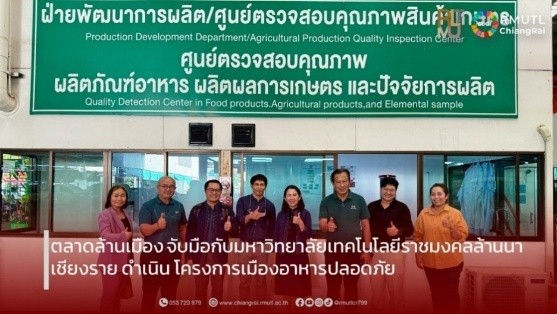
On December 3, 2024, Mr. Phairoj Hanphithakwong, Manager of Laan Mueang Market, met with RMUTL Chiang Rai, led by Assistant Professor Dr. Chamaiporn Rattanacharoenchai, with representatives from the Faculties of Science and Agricultural Technology and Engineering. The meeting focused on the Safe Food City Project to promote safe food production, enhance quality of life, and strengthen food security in Chiang Rai, including MOU development, environmental monitoring, and integrating agricultural technology into curricula. The RMUTL team also toured the market’s Food Product and Agricultural Quality Inspection Center, which tests produce and meats to ensure safe, high-quality food for residents.
RMUTL Welcomes Phayao College of Agriculture and Technology
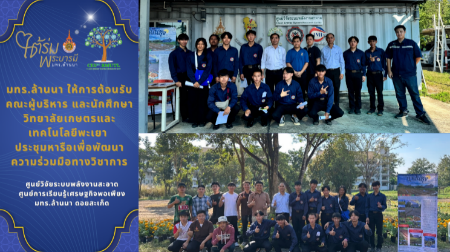
RMUTL warmly welcomed administrators and students from Phayao College of Agriculture and Technology for a meeting to discuss academic collaboration. The visit included a study tour on clean energy technologies and smart farming innovations.
RMUTL Hosts Delegation from Phayao College of Agriculture and Technology
On December 12, 2024, RMUTL Doi Saket welcomed a delegation from Phayao College of Agriculture and Technology, led by Acting Lieutenant Prasert Prompao, with faculty and 12 students.
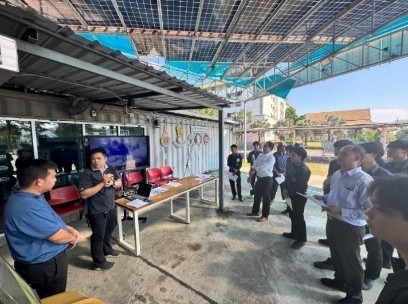
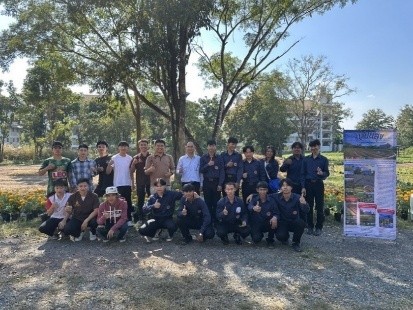
The meeting highlighted academic collaboration and a study visit to RMUTL’s research in precision agriculture, smart farming, and clean energy. University representatives presented projects and guided the delegation through mobile solar water pumps, precision greenhouses, and electricity peak management systems. The visit promoted agricultural education, knowledge transfer, and pathways for students to join RMUTL programs.
The delegation then visited the Sufficiency Economy Learning Center at RMUTL Doi Saket, part of the Royal Projects-based Learning Area Development initiative. The project aims to enhance local potential and create model communities of well-being through technology and innovation, with active participation from both the university and surrounding communities.
Samart Sa-lee from the Under the Royal Patronage Program, along with students from the Equitable Education Fund (EEF), welcomed the delegation, provided presentations, and demonstrated the integration of New Theory agriculture based on the Sufficiency Economy Philosophy. The model areas included:
- Organic rice paddies and post-harvest crops
- Demonstration plots for rotational, alternative, and replacement crops
- Vegetable gardens and edible fences
- Agricultural technology testing areas
These model areas serve as social laboratories, combining royal knowledge and hands-on learning outside the classroom. Participants gain practical experience, develop a thorough understanding, and are equipped to adapt, expand, and apply the technologies and management practices appropriately in their own communities.
RMUTL Doi Saket Sufficiency Economy Learning Center: Promoting Sustainable Development
The Sufficiency Economy Learning Center at RMUTL Doi Saket supports education, research, and academic services to drive sustainable development. Applying the Sufficiency Economy Philosophy, it strengthens local capacity for food security, livelihoods, poverty reduction, and nutritional well-being, while promoting sustainable agricultural practices. These efforts advance social equity and align with the Sustainable Development Goals through community engagement and localized initiatives.
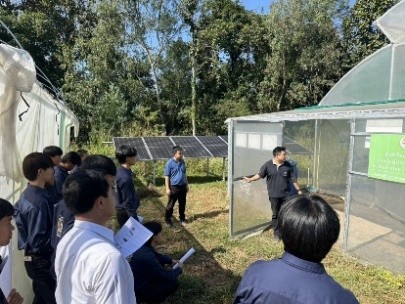
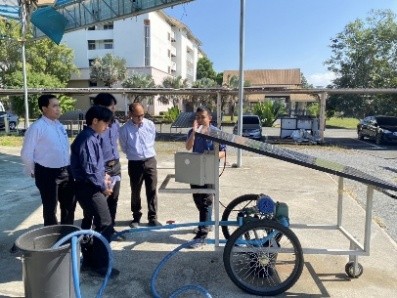
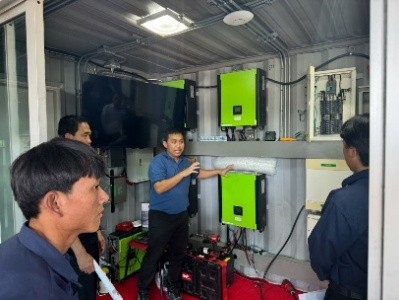
Enhancing Community Access to University Resources for Sustainable Agriculture
RMUTL provides local farmers and food producers with access to its academic and technological resources to support sustainable agriculture. Through laboratories, agricultural technologies, plant varieties, and the Community Knowledge Repository, RMUTL shares research, innovations, and best practices, enabling communities to improve productivity, adopt environmentally responsible practices, and strengthen food security. This approach integrates academic services with community empowerment, fostering long-term economic and environmental resilience.
